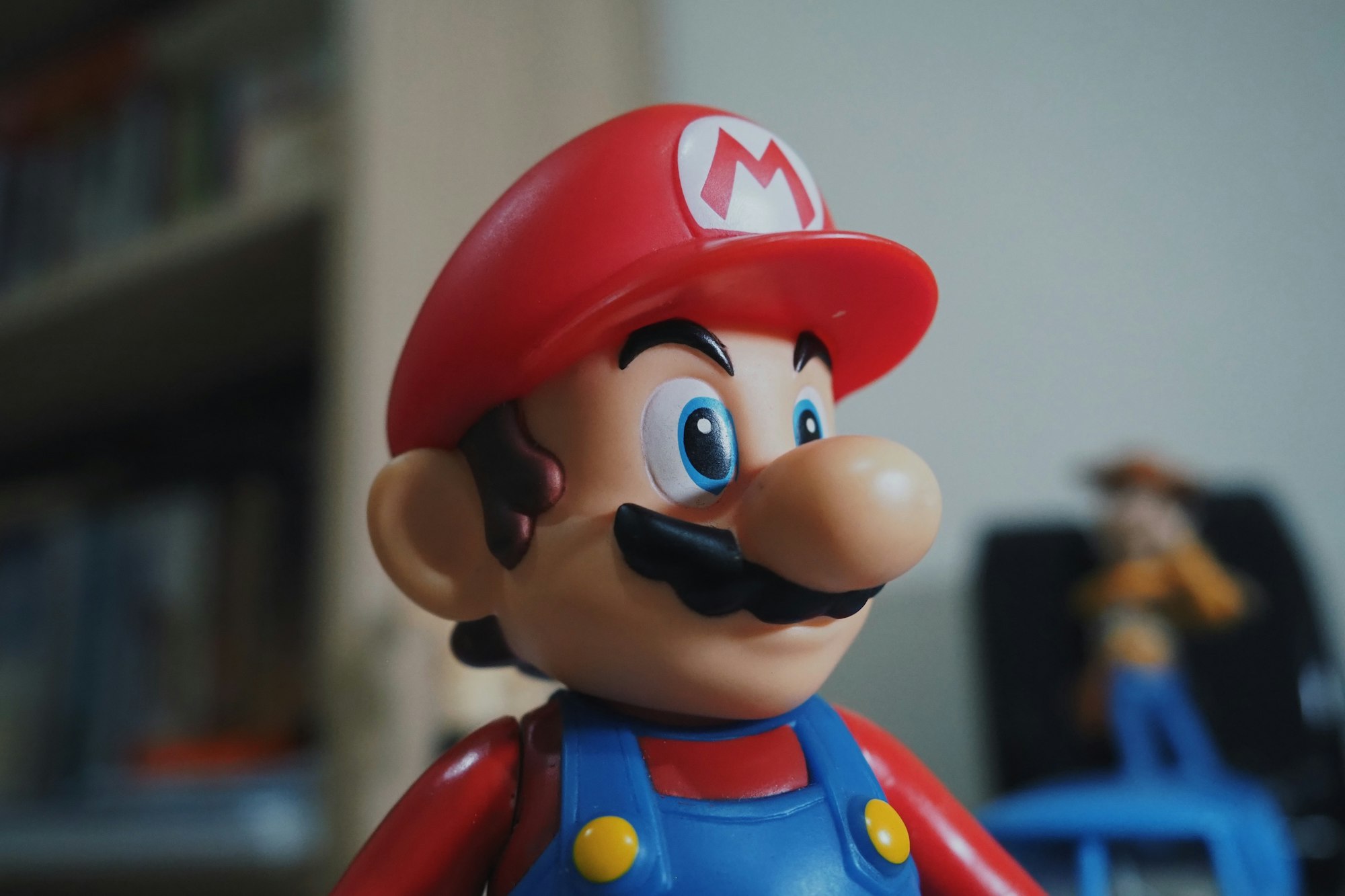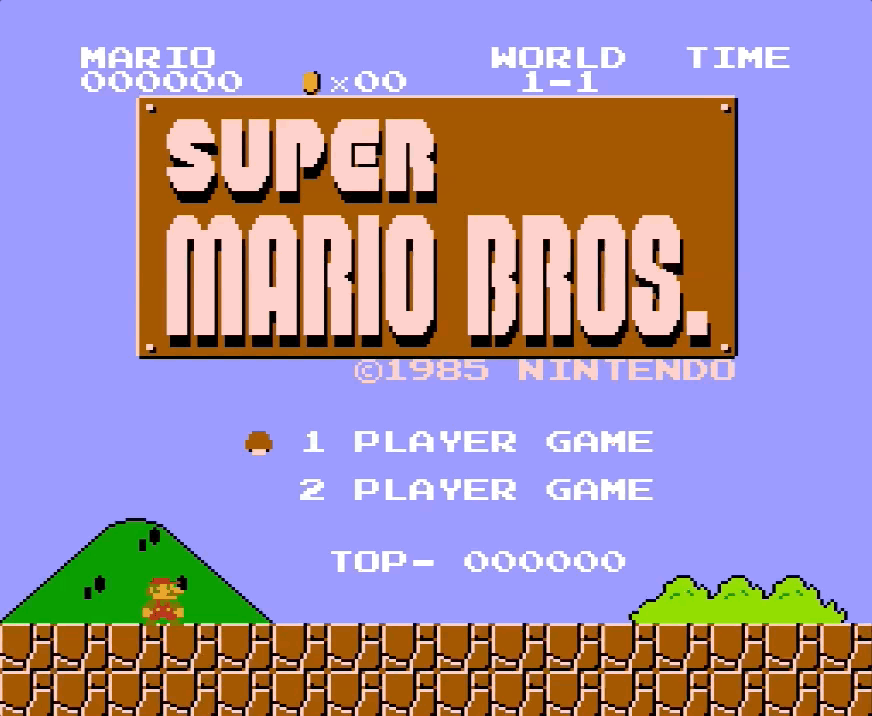The Legendary Naming of Mario: A Tale of Coins, Creativity, and Unexpected Inspiration
Decoding the Mushroom Kingdom's moniker mystery

Hey there, fellow adventurers of the digital realm! Grab your virtual shovels because we're about to unearth a tale as convoluted as a warp pipe labyrinth and as epic as Mario's moustache: that's right – we're diving deep into the legend behind Mario's name. You know, the red-hatted plumber who's been plumbing our hearts and saving princesses for decades. And trust me, folks, this is a tale for the ages, complete with angry landlords, 'Super' surprises, and more twists than a barrel full of Donkey Kongs.
As referenced in Donkey Kong's Fuzzy History, Mario's early history isn't always crystal clear. It's like trying to decipher whether Toad's hat is a hat or his head is a hat (seriously, what's up with that?). One particular slice of the story that's more mysterious than an invisible block is how exactly Mario got his iconic name. The story has been conveyed many times—but not always accurately. It feels very much like a game of telephone.
A reclusive landlord and a flash of genius
Enter the legendary figure, Don James, now the Nintendo of America (NOA) Executive Vice President of Operations, who was part of the elite team that christened Mario. They needed a name, a moniker that could withstand the weight of countless adventures and platform jumps. And then, inspiration struck—a name plucked from the air, a name that would forever be synonymous with gaming greatness. In February 2012, he spilled the mushrooms—err, beans—on the Game Life Podcast episode 018:
"A long time ago," he recounted, "they sent Donkey Kong over to us when we were at a little tiny warehouse down at Southcenter in Seattle. We were standing out there, myself and Mr. Minoru Arakawa, who was president [of NOA] at the time, and the character in Donkey Kong was called Jumpman in Japan, and they said, what do you want to name it in the USA? And so we sat there, and we thought, the guy who owned the lease on our facility was named Mario Segale, and so we thought, this guy is a recluse, no one's ever actually met him, so we thought, 'wouldn't it be a great joke if we named this character Mario?' And so we said, 'That's great,' and we sent a telex to Japan, and that's how Mario got his name."
Now imagine if the title "Super" played a role in the original brainstorming. While this theory might not have been directly addressed by Don James, it's too delightful to ignore. "Super" was traditionally used to mean "above, beyond", an addition to a particular word, which brings to mind the idea of a "superintendent", a person who occupies a different but similar enough function to that of a landlord. Superintendents are the heroes of apartment complexes, fixing leaky faucets and rescuing cats from trees. Could "Super" Mario be a homage to the unsung heroes of real estate and – in this case – Mario Segale?
And what about those coins? Oh, those precious, shiny coins that seem to be Mario's true calling in life. What if they aren't just currency but also an homage to Mario Segale's real-world position? Perhaps every coin Mario collects is a tribute to his landlord's formidable rent-collecting skills.
Gaming's evolution and Mario's ascension: A nod to the era
Let's pause for a moment and soak in the historical context of the gaming industry during the time Mario was christened. The 1980s and early 1990s were a transformative period for video games. They had evolved from simple pixelated experiences to intricate narratives and dynamic gameplay. The cultural phenomenon surrounding video games was beginning to take shape, with arcades becoming a social hub and consoles finding their way into living rooms worldwide.
In the midst of this gaming renaissance, Mario emerged as a figurehead and more than just a character. He became a cultural icon, representing not only Nintendo's success but also the collective imagination of gamers. But what truly cements Mario's significance goes beyond his adventures through pipes and castles. Mario is a pivotal character who helped resurrect an entire industry, revitalizing it after the devastating crash of 1983.

When the video game market crashed in the early 1980s, it sent shockwaves through the industry. People were disillusioned, and the future of video games seemed uncertain. Enter Mario, the charismatic plumber with an indomitable spirit. It was during these tumultuous times that Mario made his debut in the game "Donkey Kong." While he was initially known as Jumpman, his infectious charm and captivating gameplay immediately hooked players, offering them a new sense of escapism and wonder.
As the character evolved and the years went by, Mario's journey mirrored the resilience of the gaming industry itself. His triumphant leaps and endless determination symbolized the spirit of creators who refused to relinquish their craft. With each new game, Mario carried the hopes and dreams of both players and developers alike.
The name "Mario" became synonymous with the revival of gaming. It represented a fresh start, renewed excitement, and a promise of better things to come. The impact of Mario's popularity and the quality of his games showed the world that video games weren't just a passing fad; they were an art form, a form of entertainment with the power to shape cultures and bring people together.
In this sense, Mario's name is more than just a label; it's a testament to his role in shaping the gaming landscape. He paved the way for the industry's resurgence and growth, inspiring countless other characters and franchises. And as we continue to enjoy new Mario adventures, it's a reminder of the enduring legacy of a character who not only saved princesses but also saved an entire medium.
So, as we consider the historical context, let's remember that Mario's journey was intertwined with the history of gaming itself. He emerged at a critical juncture, a beacon of hope that guided the industry out of its darkest days and into a new era of creativity, innovation, and boundless imagination.
When legends collide: The multiverse of Mario's name
All right let's spice up this story and weave in these intriguing theories. We're turning this name-origin quest into a pixelated rollercoaster of laughter and speculation.
Let's kick off with the mother of all tales, straight from David Sheff's 1993 game bible "Game Over." The following excerpt is from page 109:
[The NOA staff was] trying to decide what to call the rotund, red-capped carpenter when there was a knock at the door. Arakawa answered it. Standing there was the owner of the warehouse. In front of everyone, he blasted Arakawa because the rent was late. Flustered, Arakawa promised that the money was forthcoming, and the man left. The landlord's name was Mario Segali [sic]. "Mario," they decided. "Super Mario!"
I can envision it now, NOA staff huddled together, contemplating what to dub our rotund, red-capped hero. As they pondered the mysteries of Mario's moniker, a knock rattled the door. In barged the landlord, Mr. Segale, spewing frustration like a fire-breathing Koopa. "Where's my rent?" he roared, and the room quaked like a shaky platform.
Arakawa, bless his gaming soul, tried to pacify the landlord's virtual rage by promising prompt payment. Phew, crisis averted. And that was the moment they decided to name their pixelated hero after the landlord himself! "Mario!" they declared, like a Mushroom Kingdom proclamation. And in a twist worthy of a bonus level, they decided to slap "Super" in front of it, though they'd have to wait a few years for Mario to earn that superlative in "Super Mario Bros."
Unveiling the facial fortunes: from pixels to the iconic 'Stache
Now, hold onto your Power-Ups because the tale doesn't stop here. Let's rewind to the '80s—big hair, neon, and Nintendo magic in the making. Enter Shigeru Miyamoto, the wizard behind Mario's curtain. He tossed his hat into the ring with a different version of events: Picture Mario's iconic big nose, mighty moustache, and those trademark overalls. Miyamoto's colleagues saw an uncanny resemblance to an Italian caretaker at a cozy New York hotel. Talk about life imitating art!
Miyamoto, ever the maestro, played this game of 'Name That Plumber' in reverse. He claimed that NOA's New York-based wizards were so enchanted by this accidental doppelgänger that they started calling their pixelated hero "Mario." And as the pixels aligned, the name stuck like a Super Star.
Fast forward to 2005, and Miyamoto's yarn gets even more twisted. This time, he hints that the NOA warehouse, where the gaming legends plotted their world-conquering plans, was actually in the Big Apple instead of Seattle. The thread of confusion winds tighter, as there was also an intriguing Japanese picture book titled "The Stars of Famicom Games," where it's whispered that even Mario's name and moustache had a real-life counterpart. Therein lies the speculation that our moustachioed hero borrowed his look from a fellow apartment dweller of a Nintendo employee in the U.S.
But here's the cherry on top: Miyamoto assures us that while the name got a nod, Mario's iconic mustacho was a design choice, not a real-world import. It turns out the moustache was simply pixel-perfect.
The emergence of a gaming legend
In the end, dear gamers and Mario enthusiasts, the origins of our iconic plumber's name are a patchwork quilt of wacky hearsay. Legends collide, theories bounce like power-ups, and amidst the chaos emerges a gaming icon that has united generations.
So as we navigate our nostalgia, let's remember that legends are often a blend of truth and whimsy, much like a game of Mario Kart, the road littered with banana peels and sly blue shells. Mario, the plumber who captured our imaginations, is more than just a name; he's a symbol of gaming magic that continues to inspire players, young and old. So here's to an unknown history – and wishing you endless lives, coins aplenty, and a lifetime of gaming joy.
